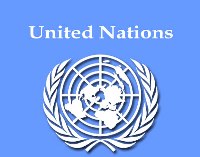UN expert: No perfect way to predict imminent quake
 Geneva - There is no sure-fire way to predict an impending earthquake, David Alexander, a United Nations disaster expert said Tuesday.
Geneva - There is no sure-fire way to predict an impending earthquake, David Alexander, a United Nations disaster expert said Tuesday.
"It's probable there will never be a foolproof, fail-safe means of predicting earthquakes over the short term," Alexander told the German Press Agency dpa by phone from Florence, Italy.
What scientists could predict was mainly which areas were prone to be struck by a quake in the medium- and long-term, meaning over years and centuries.
Those areas, Alexander added, would require building plans and other disaster preparedness policies to cope with the inevitable.
The World Health Organization this year issued a policy plan for its member-states, calling on them to prepare their health systems and hospitals for emergencies like natural disasters and conflicts.
Even lacking accurate tools to predict a quake, there were some visible signs before an earthquake.
"There are some physical phenomena that give indication of short term earthquake warnings," said the expert who works with the International Strategy for Disaster Reduction, a UN programme.
The levels of ground water in wells and spring might change, and fireballs, lightning or a "pinkish-purple" hue may be visible in the skies.
"I've seen that before a major earthquake in southern Italy," Alexander said about the sky colouring. He said this was "not supernatural" but a result of elements released into the air by the underground movements.
An Italian researcher, Gioacchino Giuliani, claimed to have predicted the earthquake, but Alexander insisted the methods he used, mainly measuring radon in water, could have also led to a false alarm, which would have had consequences of its own.
"That can be far more dangerous than telling people, certainly far more disruptive," said Alexander.
For now, Alexander felt it was more important for states to focus resources on protecting people rather than trying to develop a precise prediction mechanism, which in his view was unlikely to become reality. (dpa)